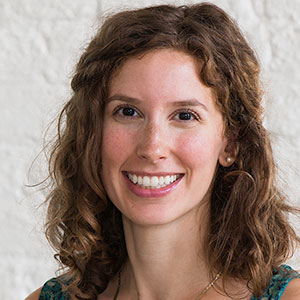
SLAPLAB
SLAPLAB (Science, Law & Policy Lab) is a vertically-integrated, interdisciplinary laboratory directed by Dr. Nita Farahany, Professor of Law & Philosophy and Director of the Duke Initiative for Science & Society. |
Nita Farahany, PhD, JDPrincipal Investigator |
 |
Patrick McGeePost-bacc Fellow |
SLAP Lab Alumni
 |
William L. D. KrenzerResearch Project Manager |
 |
Colleen BerryessaColleen Berryessa is an Assistant Professor at Rutgers University in the School of Criminal Justice. She received her Ph.D. in Criminology from the University of Pennsylvania. Her research examines discretion in the criminal justice system, focusing on social contexts and societal attitudes toward mental disorders and biological research on behavior, and how they may affect the legal process and justice system. She received her B.A. from Harvard University and was also a research fellow at the Center for Biomedical Ethics at Stanford University. |
 |
Kirsten BleiweissKirsten is an MA in Bioethics & Science Policy student at Duke, having previously earned a BS in Neuroscience and a BA in Political Science from the University of Southern California in 2016. During her undergraduate career, she discovered her interests lie in the intersection of these dynamic fields. Dealing with issues of international policy and global health, she spent time researching parasitic diseases in developing nations at Oxford University – specifically focusing on schistosomiasis and onchocerciasis. During her time at Duke, she plans to examine the intersection of neuroscience and the law – how neuroscience is used as evidence, what advances in neuroscience technology might mean for the future of the legal system, and the ethical implications of these topics. After Duke, she intends to pursue a JD and focus her work on intellectual property, science, and health with potential international applications. |
 |
Saheel ChodavadiaSaheel Chodavadia is a sophomore from Austin, Texas interested in majoring in Economics and Psychology with the Experiential Ethics Certificate. He has worked separately with science and policy before and hopes to help bridge the gap to ensure translatable impact at scale. Saheel enjoys citruses (specifically limes), cooking, and owns a competitive spice collection. |
 |
Meredith Van NattaMeredith Van Natta, PhD, is a medical sociologist and postdoctoral associate at Duke University’s Science, Law & Policy Lab (SLAP Lab). Meredith studies the intersection of citizenship and science, medicine, and technology policy. She holds a master’s degree in Latin American Studies from the University of California, Berkeley, and a doctoral degree in Sociology from the University of California, San Francisco. Her current research focuses on the ways in which noncitizen patients and their healthcare providers balance biological and social risks amidst contemporary policy uncertainty in the United States. As a postdoctoral associate in SLAP Lab, Meredith is working with an interdisciplinary team examining DNA, Biometrics, and Immigration Policy. |
 |
Shelby BairdShelby Baird is a joint-degree student pursuing a JD and MA in Bioethics & Science Policy at Duke. She graduated from Yale University in 2014 with a BA in political science. Upon completion of her undergraduate degree, she worked for an appellate litigation firm in Washington, D.C. At Duke, she is involved with the Health Law Society, Cancer Pro Bono Project, and Federalist Society. She wants to use her joint-degree to pursue a career in health care law and is interested in projects that improve patient access to quality care. |
 |
Scott “Esko” BrummelScott “Esko” Brummel is a recent graduate of Duke University’s Master in Bioethics and Science policy. Through this degree, he has developed skills to best interpret the relevancy of emerging scientific research and development with progressive and discovery-focused policy. In Duke Robotics Humans and Autonomy Lab, Esko works with Dr. Missy Cummings and NASA’s Glenn Research Center to study strategies to appropriately assess risk for new technological devices for complex space flight. Beyond HAL, Esko also serves as the lead editor for all things robotics and artificial intelligence at Duke University’s online science policy tracking website SciPol. |
 |
Beatrice CapestanyResearch Project Manager Beatrice received her Masters and PhD from the Psychology & Neuroscience Department at Duke University, where she investigated how neuroscience evidence impacts sentencing decisions in the U.S. criminal justice system. Her research broadly explores how emerging technologies (e.g. consumer neurotechnology, AR/VR) are perceived and integrated into law and policy. Prior to her graduate studies, Beatrice worked as a lab manager/research associate in a social neuroscience lab that focused on how people attribute mental states to others. |
 |
Charlie GiattinoCharlie is a neuroscientist interested in neuronal oscillations–“brain waves”–and their role in how the brain encodes and routes information. He is currently a fifth-year PhD candidate in Marty Woldorff’s lab at Duke University, where his predoctoral research focuses on using electrophysiological measures (EEG) in humans to understand the role of oscillations in attentional selection, perception, and working memory. Charlie is also affiliated with the Department of Psychology & Neuroscience, the Center for Cognitive Neuroscience, and the Duke Institute for Brain Sciences. |
 |
Lydia KwongLydia Kwong graduated from The Ohio State University with a B.S. in Neuroscience and a minor in Bioethics. During her undergraduate tenure, she learned how the development of biotechnology rapidly advanced the discovery of treatments in medicine. It was curious to her, as a bioethics student, that biotechnology could simultaneously benefit and harm members of society. When she realized that mapping the human genome led to medical innovations, but also necessitated the development of genetic privacy laws to protect individuals against genetic discrimination, she was fascinated. Now, as a SLAP lab researcher, she’s committed to exploring the potential societal impacts of biotechnology and how this influences law and policy. |
 |
Elish MahajanElish Mahajan is a 2nd year undergraduate student majoring in Biology and Computer Science. He is currently doing research on the role of the human microbiota in chronic disease. He is also an EMT-B provider for Duke University EMS. |
 |
Chad RafettoChad is a junior majoring in Biomedical Engineering with the intent to go to law school upon graduation. He is interested in the ways in which medical devices are implemented and perceived in our society. After getting his JD, he aspires to be involved in the policy side for emerging technologies and intellectual property. |
 |
Nancy ZhangNancy Zhang is a senior in Biomedical Engineering, with a minor in Psychology. She is interested in the social and ethical implications of Artificial Intelligence and machine learning. She is also interested in the collection, analysis and utilization of Big Data, particularly in the healthcare context. She hopes to bridge the gap between innovative technologies and society by researching on the impact of science and addressing public concerns. |

